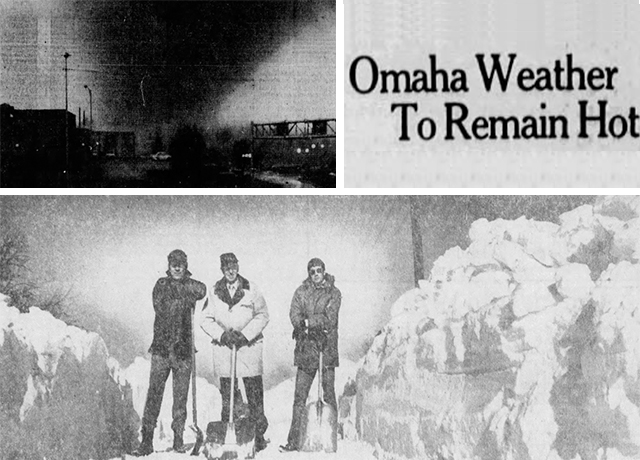Featured Testimonial About Creighton University
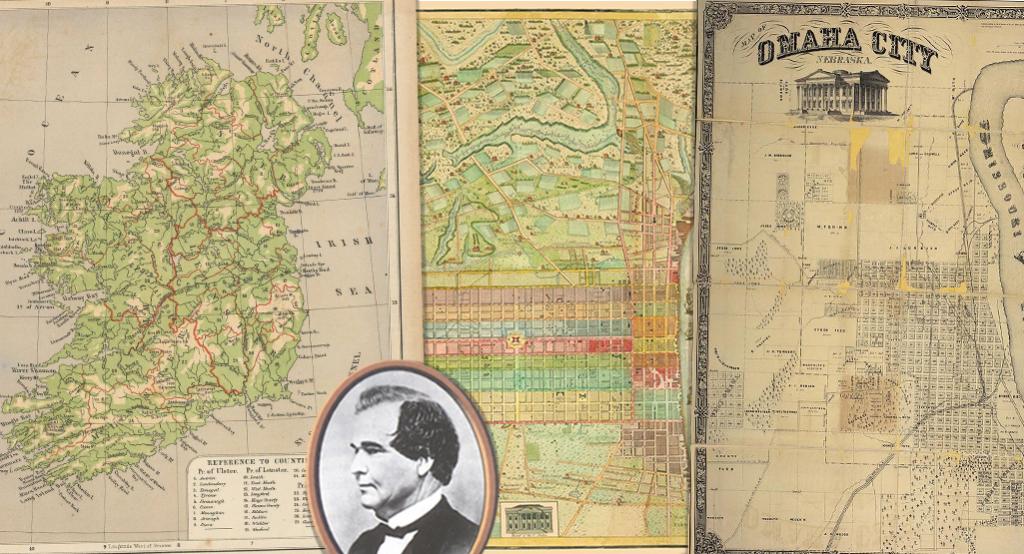
We might have been McCraren University, a Dominican institution located in Omaha, Nebraska, and founded in 1877 by the wife of a telegraph pioneer.
Want to join the Creighton Society?
We celebrate the legacy of our founding family through the Edward and Mary Lucretia Creighton Society, which honors those who — in the spirit of the Creightons — support our students and ensure the future of the University. Learn how to become a member of the Creighton Society here.
* * *
By Micah Mertes
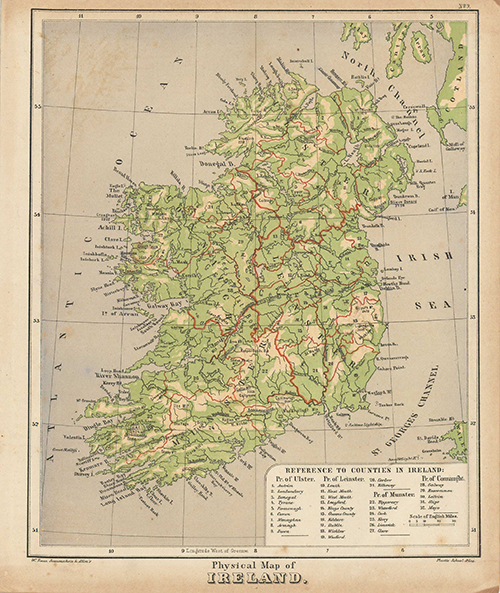
With St. Patrick’s Day coming up, we realized we just don’t talk enough about our University’s Irish heritage. Why not start now?
There are a lot of ways we could go about this. For instance, take the names of the laymen faculty in the University’s first decade — O’Brien, O’Shaughnessy, Mahoney, McCaffery, two McKennas. But of course, the most obvious name is that of our founding family.
I knew a little about the Creighton’s Irish heritage before I properly dug into it. I knew Edward and John were born in Ohio, the sons of poor Irish immigrants. That their father, James Creighton, came from County Monaghan, Ireland, in 1805, and that six years later, he married Bridget Hughes, who moved to America from County Armagh, Ireland. Family lore has it that she came to America after she was evicted from her homestead. (Creighton University’s history owes everything to that landlord.)
Here's what I didn’t know: The family our University is named after almost certainly wasn’t named Creighton.
Like with so many families who emigrated to America, the journey to the name of Creighton was long and winding. Dennis Mihelich’s The History of Creighton University notes that ship manifest records out of Ireland listed Edward and John’s father as James McCrarin. When James arrived in Philadelphia two months later, a clerk would rename him McCraland. Six years later, a wedding certificate would join in matrimony Bridget Hughes and James McCraren. The McCraren name was further confirmed in family wills.
James McCraren would eventually become James Creighton due to his brother, Christopher (who changed his surname after — and likely because of — his conversion from Catholic to Methodist). Other members of the McCraren family remained Catholic but followed suit with the name change.
But it would take many years more to get the new name right. In 1820, the year of Edward Creighton’s birth, a census taker listed the family name as Craton. It finally appeared correctly in the 1840 census.
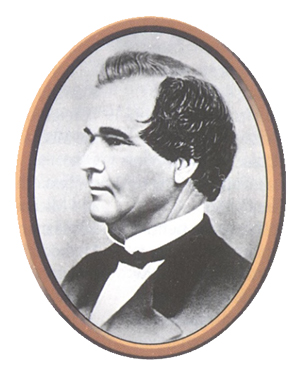
A huge part of the confusion with Irish names came from the fact that many Irish immigrants from that time were illiterate, due to the nation’s Penal Laws, which had denied Catholics an education.
When Edward and John Creighton’s father first came to America, he didn’t know how to spell. The passion for education he instilled in his sons — which led to the founding of Creighton University — was no doubt influenced by his being denied the opportunity himself.
Few have written so much so well about Creighton’s history as the late Bob Reilly, BA’45, whose 1996 article in the Window magazine, “The World of the Creightons,” is essential reading for anyone interested in the Creighton family’s Irish origins. (You can find the full article here.)
I’m going to honor Bob by cribbing from his work for the remainder of this story. Here are some highlights from his history of the Creightons …
• When James (McCraren) Creighton arrived in America, many major cities forced Irish immigrants into “crowded, unsanitary slums, ghettoized with their fellow Gaels. Although largely unskilled at urban labor, these new arrivals had strong backs, an exemplary work ethic and a willingness to erect buildings, pave roads, dig coal and manage households for as little as six dollars a month.”
• James Creighton was described by his biographer Rev. Patrick Mullens, SJ, as “a man of robust physique and strong character, which left its impress upon his children" and as "living in the midst of people who despised his race and hated his religion." His wife, Bridget, "always found time to look after the instruction of her children in the essential points of Catholic belief."
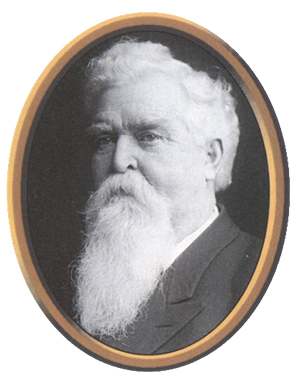
• University co-founder John Creighton “devoted his share of his father’s inheritance to further his education, attending St. Joseph’s College, run by the Dominican order in Somerset, Ohio. He took honors in math, history, English, geography and religion,” though he opted out of a speech course, as he had a strong fear of public speaking.
• When Edward Creighton arrived in Omaha in the 1850s, it was “a village of 600 that consisted of substandard housing and streets clogged with mud. Despite this inhospitable panorama, Edward Creighton, whose glass was always half-full, decided to set down roots. He returned to Ohio only long enough to wind up business and to wed his fiancée, Mary Lucretia Wareham. On their honeymoon, Creighton transported a load of lumber on his trip back to Omaha to defray the cost of the journey.”
• One thing in Reilly’s Creighton history that might be surprising is how close we were to not being a Jesuit university at all. When Mary Lucretia left $100,000 in her will to establish Creighton University (based on her late husband’s wishes), she had hoped for it to be a free school for poor Irish Catholic Boys run by the Dominican Order she was connected to. But the Dominicans said no. So, the Bishop of Omaha Diocese of Omaha, James O’Connor, SJ (born in Queenstown, Ireland, by the way) called on the Jesuits.
I’ll leave the last word to Bob Reilly:
"We might have been McCraren University, a Dominican institution located in Omaha, Nebraska, and founded in 1877 by the wife of a telegraph pioneer.
“History turns on minor events, on simple decisions, and these often lose themselves in the larger reality.
"If Irish tenant farmers had not lost hope; if the American frontier had not moved rapidly west; if transportation and communication had not become essential industries; if the American Civil War had not occurred; if Edward Creighton had not been at the right place at the right time; if those abandoned cattle in western Nebraska had not survived; if Father Michael D. Lilly, vicar-provincial of the Dominican Order in the United States, had not turned down the proffered bequest of Mary Lucretia Creighton … if, if, if.”
* * *
If you’re interested in reading more about the Creighton family, I’ve written a few other pieces, including:
How Edward Creighton United a nation with a telegraph line
The first Creighton to attend Creighton University
The University community’s history of giving started with the Creightons
* * *
Want to join the Creighton Society?
We celebrate the legacy of our founding family through the Edward and Mary Lucretia Creighton Society, which honors those who — in the spirit of the Creightons — support our students and ensure the future of the University. Learn how to become a member of the Creighton Society here.


